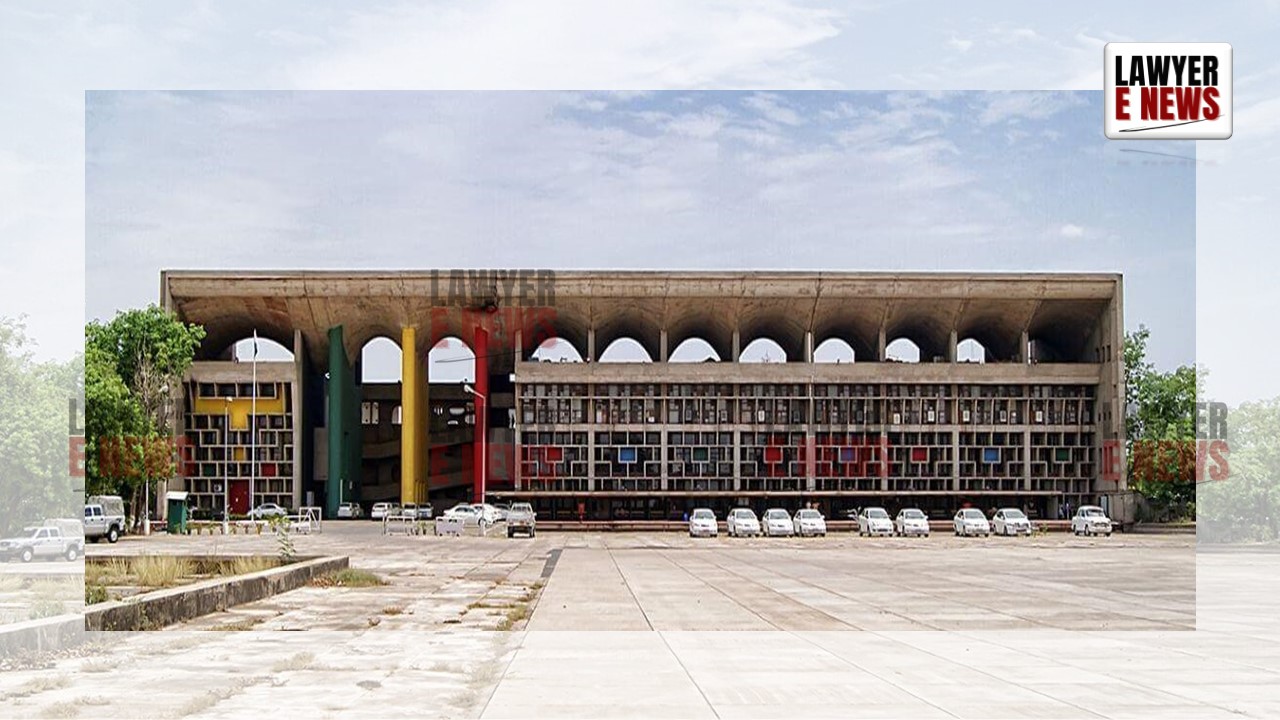-
by Admin
16 February 2026 1:47 PM



"Contempt Power Should Be Exercised With Wisdom, Not Petulance": High Court on Balancing Free Speech and Judicial Dignity. Punjab and Haryana High Court, in a landmark decision, dismissed criminal contempt proceedings against Advocate Renuka Chopra, observing that her remarks on social media, though inappropriate, were born out of frustration due to traumatic events. The Court ruled that punitive action would serve no meaningful purpose, emphasizing a truth-oriented and value-driven approach to resolving such cases.
The contempt petition, Court on its own motion vs. Renuka Chopra, arose from derogatory social media posts by Ms. Chopra against Judicial Magistrate Ms. Neetu Nagar, following her judicial custody order. The posts were deemed as criminal contempt under Section 2(c) of the Contempt of Courts Act, 1971, for allegedly scandalizing the judiciary and obstructing justice.
Defamatory posts on Facebook against the presiding officer.
Scurrilous allegations of systemic judicial corruption and police complicity in her maltreatment.
Advocate Chopra claimed the social media posts stemmed from her harrowing experiences of alleged police assault, wrongful detention, and judicial apathy. Her allegations were corroborated by medical reports detailing injuries sustained during custody.
The Court noted that the respondent's remarks reflected her frustration after facing systemic injustices, including police assault and perceived judicial inaction. The Court emphasized that while such remarks are unacceptable, they require a nuanced approach when stemming from traumatic experiences.
Referring to Supreme Court precedents, including S. Mulgaokar (1978) and Brahma Prakash Sharma (1953), the Court reiterated that the judiciary must endure fair and even harsh criticism as long as it does not obstruct justice or undermine public confidence.
“The judiciary cannot be immune from criticism. But criticism, when based on frustration and systemic grievances, must be weighed with context,” the bench observed.
Despite the social media posts, the Court found no evidence of interference with judicial processes or administration of justice. The remarks were deemed personal expressions rather than an intentional act to obstruct or lower the judiciary's authority.
The High Court emphasized the need for restraint in exercising contempt powers, stating:
“Justice is not hubris; power is not petulance. A magnanimous and dignified approach is essential in contempt matters, especially when systemic grievances are involved.”
The Court cited key judgments to underscore the limited application of contempt powers, including:
Rustam Cawasjee Cooper v. Union of India (1970): "Courts are open to fair and temperate criticism, even if strong, but must act when criticism degenerates into vilification."
Sheela Barse v. Union of India (1988): "Judicial institutions are not exempt from public criticism; they thrive in climates of scrutiny."
After considering the respondent's grievances, systemic challenges, and long-standing trauma, the Court dismissed the contempt proceedings with the following key observations:
The remarks, though offensive, arose from frustration and did not reflect malice or intent to undermine the judiciary.
The Court highlighted lapses in handling the respondent’s complaints and noted her mistreatment during custody as a critical factor.
“No useful purpose would be served by punishing the respondent, who has already faced protracted litigation and systemic challenges. This Court adopts a value-oriented and truth-discerning approach to put the matter to rest.”
This decision sets a precedent for addressing contempt cases with compassion and perspective, especially when personal grievances and systemic issues are involved. It underscores the judiciary's commitment to maintaining its dignity while respecting the citizen's right to criticize public institutions.
Date of Decision: November 7, 2024
